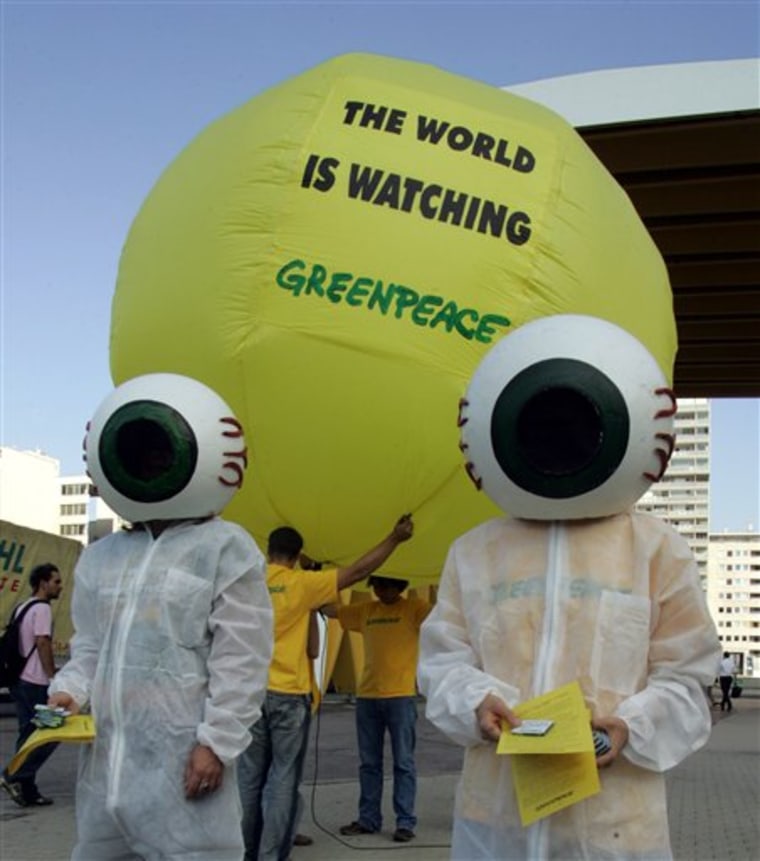More than 100 nations struggled Monday to strike a balance between what rich and poor countries must do to cut greenhouse gas emissions and slow global warming.
The U.N.'s top climate official, Yvo de Boer, said delegates to the Vienna meeting were trying to forge a practical way forward before a major international climate summit in Bali, Indonesia, in December.
A key goal is forging a rough consensus on emissions targets that industrialized countries can formally agree to in Bali, said Leon Charles, a negotiator from Grenada who is helping oversee the Vienna talks.
Underscoring a growing sense of urgency, German Environment Minister Sigmar Gabriel issued a blunt warning: "Time is limited. We must act now to prevent the worst consequences of climate change."
De Boer pointed to the European Union's recent goal of reducing emissions by 20 percent by 2020 — and by another 10 percent if other nations join in — as an example of what can be done.
"That's exactly the kind of thing that developing countries are looking for from rich countries," he said.
U.S. team called 'fully engaged'
He praised President Bush for sending a delegation he said was "fully engaged" in this week's talks, but also took a good-natured jab at Washington, which has refused to ratify the 1997 Kyoto Protocol, which requires 35 industrial nations to cut their global-warming emissions 5 percent below 1990 levels by 2012.
The Bush administration has been under mounting international pressure to take tough action.
"I guess you could say President Bush has taken the bull by the horns. The question now is where will Bush and the bull go," de Boer said, provoking laughter.
The chief U.S. climate negotiator, Harlan Watson, said consensus among rich and poor nations was key.
"We feel if we can get agreement among such disparate countries, we'll have accomplished something," he said.
De Boer said China and other developing nations such as India, Mexico and South Africa deserve credit for setting ambitious goals such as China's commitment to cut energy consumption by 20 percent per unit of gross domestic product, along with a 10 percent cut in major emissions, between 2006 and 2010.
"There's this myth out there that developing countries are doing nothing," he said. "It's not true."
China failed to hit its initial targets last year, however, and by some accounts already has overtaken the U.S. as the world's biggest polluter.
Calculating investments
A new report by the U.N. Framework Convention on Climate Change warns that governments and the private sector will have to spend about $210 billion a year — mostly in the developing world — to maintain greenhouse gas emissions at their current levels in 2030.
Over the next two decades, the world is projected to spend $20 trillion on energy, and delegates are trying to ensure those investments are as environmentally friendly as possible.
"Unfortunately, we're seeing things happen to normal people right now," Hans Verolme, climate change director for the World Wildlife Fund, told The Associated Press. "Senior negotiators have pulled out their wallets, shown me pictures of their children and said, 'This is why I do this.'"
Forging even a general, nonbinding consensus on how far to cut emissions "will send a very strong message that developed countries are taking the climate change problem seriously," Charles said.
The work will continue at two other key pre-Bali sessions: a Sept. 24 meeting at U.N. headquarters in New York, and a meeting three days later in Washington of the world's 15 biggest polluters, including the U.S., China and India.
